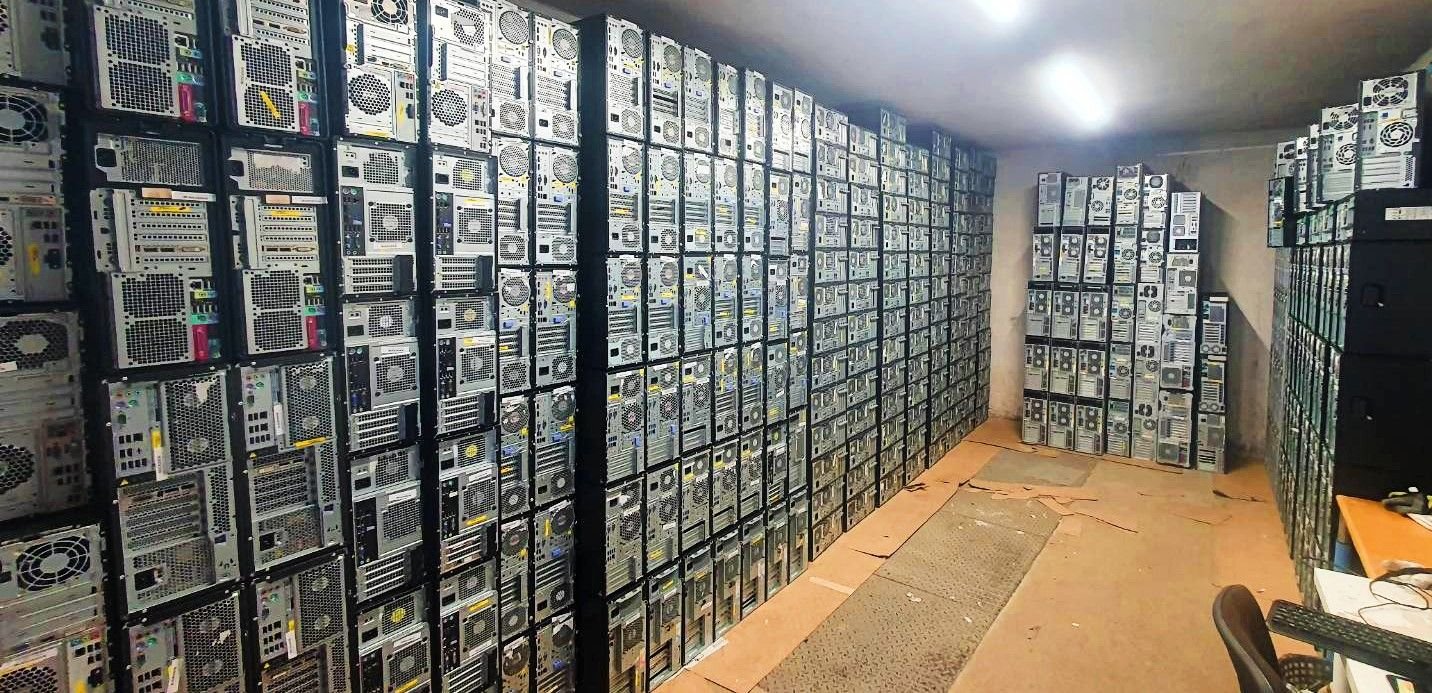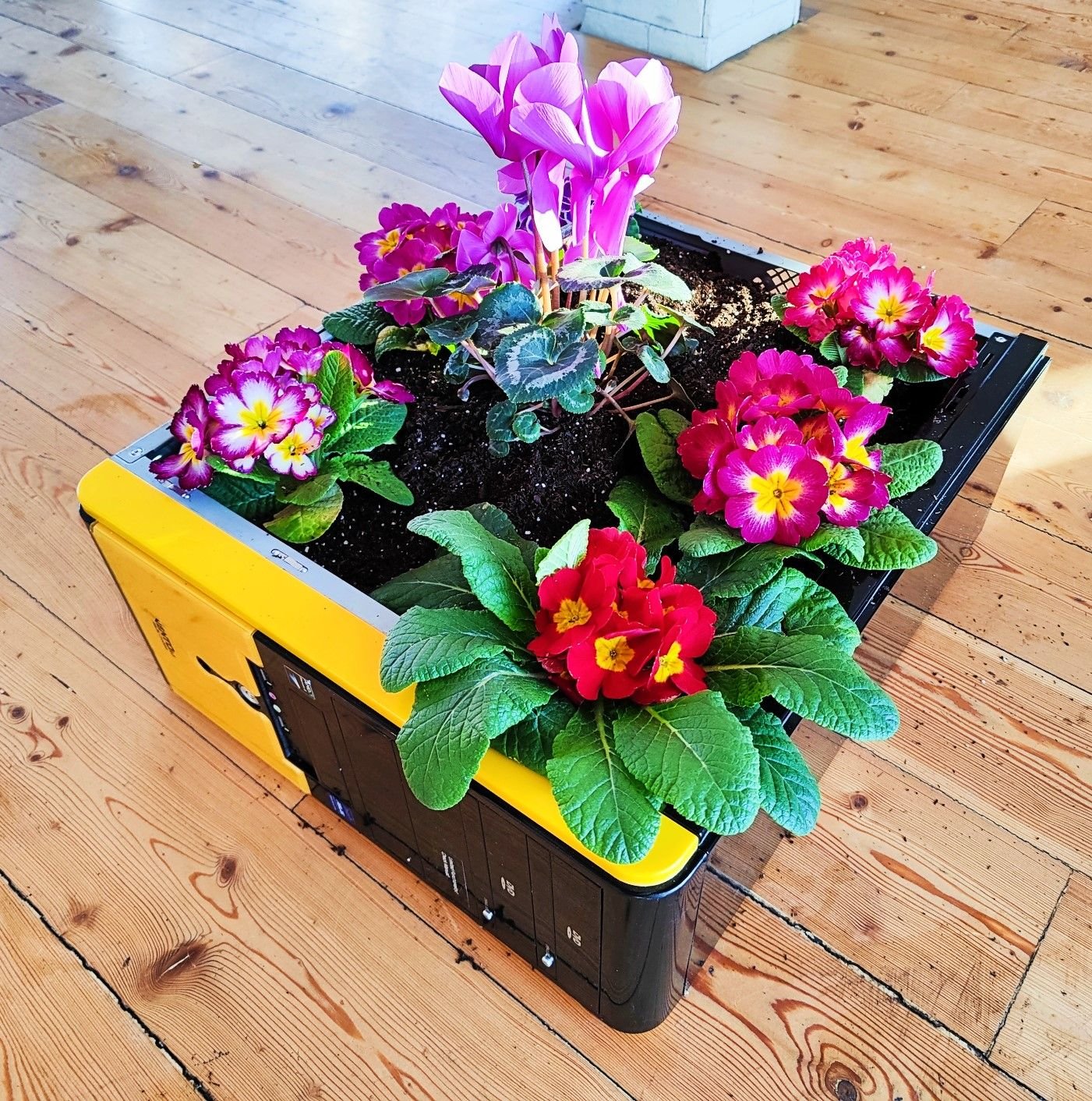
Dimitar Chakmakov told Mediapool: "The biggest challenge for the company is the lack of information about what the ITAD service is"
ITAD (Information Technology Asset Disposition) is the process of retiring outdated and unused IT equipment. The team of technicians and data processing experts at ITAD Bulgaria provides a full range of services — from decommissioning to the recycling of IT assets for companies.
However, the state has not established adequate regulations and sets unrealistic conditions for obtaining subsidies. Additionally, the industry suffers from unfair competition, says Dimitar Chakmakov, co-founder of ITAD Bulgaria, in an interview for Mediapool.
He explains that properly decommissioning IT equipment is a complex process due to various factors such as environmental impact, legal regulations, and the secure deletion of personal and sensitive data stored on devices. For these reasons, simply throwing old tech in the trash is not an acceptable solution.
“In Bulgaria, recycling and reusing equipment is, unfortunately, a difficult business. Almost no one does it the way it’s done in Western Europe. That’s what motivated us to step in — and we added a social component, too: part of the equipment we buy and refurbish is donated,” says Chakmakov.
The goal of their business is to offer cost-effective alternatives for IT upgrades, helping reduce electronic waste and allowing businesses to save money. The need for their services arises when hardware becomes obsolete and must be responsibly retired.
“Throwing laptops and computers in the bin might sound easy, but it’s far from the right thing to do,” he adds.

Many companies come to them only when their storage spaces are cluttered with unused equipment, or they need to move office. Often, decisions to dispose of hardware are made emotionally, not rationally or with full awareness.
“People lack information and encouragement, which is why interest in our services remains low.”
The "Carrot and Stick" Approach
When asked who should inform the public and ensure Bulgaria meets its EU obligations to recycle old electronics, Chakmakov suggests a "carrot and stick" strategy.
“The state should hold the stick and introduce proper regulation — for example, mandating hardware replacement every three years instead of eight. That’s not happening.”
He believes companies would be more inclined to upgrade or refurbish their IT equipment regularly if legislation required it. This would create demand for specialized services, extend device lifespans, reduce costs, and lower environmental impact.
The state could also invest in startups or offer tax relief and EU funding for such activities. Western countries like France, Germany, the UK, Spain, and Italy have already embraced the Green Deal to reduce harmful emissions.
“In Bulgaria, there’s no regulation in this area. So we — the business sector — hold the carrot,” he says, adding that if companies were informed that the old equipment gathering dust in basements still holds value, they would be more willing to act.
Unfortunately, misinformation in the industry is widespread. Some service providers mislead clients by labeling old equipment as worthless and offering to dispose of it — only to refurbish and resell it as working machines.
“There’s a lot of dishonest competition. Some companies pretend to recycle equipment, issue false certificates, and then sell it as working hardware.”
As a result, very few companies pay for old hardware or donate it.
Even Old Tech Has Purpose — Sometimes as a Flower Pot
 ITAD Bulgaria receives no government support or EU funding. Chakmakov explains they haven’t even applied due to the burdensome and restrictive application requirements, which seem tailored to favor specific businesses.
ITAD Bulgaria receives no government support or EU funding. Chakmakov explains they haven’t even applied due to the burdensome and restrictive application requirements, which seem tailored to favor specific businesses.
“We are completely self-funded. Part of our activity is social, but we’re not hiding behind it. This is a real business — we’re not the Red Cross.”
Although ITAD Bulgaria partners with international clients and works with large European companies, it's still hard for an Eastern European business to break into those markets — especially due to data security concerns.
“Western companies are still hesitant to send devices to Eastern Europe. Trust is everything in this field. It’s not just about price and logistics — we rely on long-term, trusted relationships.”
To prevent data breaches, the company uses specialized hardware and software to securely wipe all data. Much of the data processed is confidential and highly sensitive.
Despite the challenges, Chakmakov remains optimistic. There are many ways to give used devices a second life — as their latest initiative demonstrates.
“In this industry, we never say old computers are useless. In fact, in our lingo, when they’re really old, we call them ‘flowerpots.’ That’s why our latest campaign involves planting flowers in old computer cases.”
